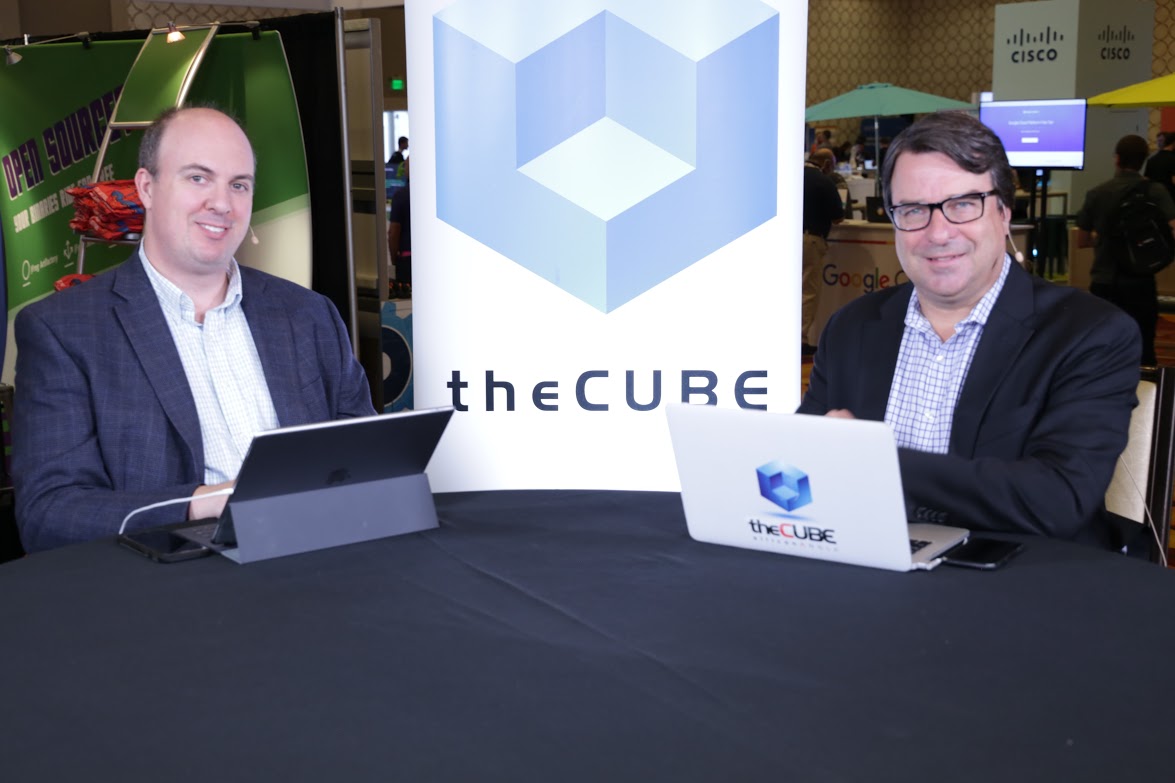 EMERGING TECH
EMERGING TECH
 EMERGING TECH
EMERGING TECH
 EMERGING TECH
EMERGING TECH
The open-source community used to thrive on rebellion against profitable proprietary corporations like Microsoft Corp. and others. All have since reconciled, and are now joining forces to fight common enemies holding back agile development.
“Open-source doesn’t have that enemy anymore. It’s the standard,” said John Furrier (@furrier) (pictured, right), co-host of theCUBE, SiliconANGLE Media’s mobile livestreaming studio. “So the questions is what is going to motivate the organizations?”
During this week’s Open Source Summit in Los Angeles, Furrier and co-host Stu Miniman (@stu) (pictured, left) agreed that developers who code in open-source and companies that contribute to it and use it in production are signalling that the new enemy is anything slow or soloed. (* Disclosure below.)
Speed, not cost, is the number one concern for companies today, and the reason they gladly contribute to open-source, according to Miniman. “They can’t wait for the turn of the crank from the old software beast or — oh gosh — if there were some chips or hardware involved in that,” he said.
Likewise, the new generation of developers entering open-source have short attention spans for the minutiae of networking and infrastructure generally, Furrier explained. “They love serverless; they love DevOps,” he said. “They want true programmable infrastructure.”
Alongside containers (a virtualized method for running distributed applications) and container orchestration manager Kubernetes, serverless computing is among the hottest topics at the conference this year, according to Furrier and Miniman.
“I love the name and hate it at the same time, because there’s servers out there,” Furrier said. But abstracting away server provisioning and returning a readily available resource pool hits all the right spots for the new generation, he added.
Open-source will need to step it up in serverless to enable silo-free development, according to Miniman. “Today, you say ‘serverless,’ I think AWS Lambda,” he said, adding that Lambda is a proprietary offering that might fetter developers with platform lock-in.
OpenFaaS and OpenWhisk are a couple of open-source functions as a service alternatives, Miniman noted.
Watch the complete video interview below, and be sure to check out more of SiliconANGLE’s and theCUBE’s coverage of Open Source Summit 2017. (* Disclosure: TheCUBE is a paid media partner for Open Source Summit 2017. Neither The Linux Foundation nor Red Hat Inc. have editorial control over content on theCUBE or SiliconANGLE.)
Support our mission to keep content open and free by engaging with theCUBE community. Join theCUBE’s Alumni Trust Network, where technology leaders connect, share intelligence and create opportunities.
Founded by tech visionaries John Furrier and Dave Vellante, SiliconANGLE Media has built a dynamic ecosystem of industry-leading digital media brands that reach 15+ million elite tech professionals. Our new proprietary theCUBE AI Video Cloud is breaking ground in audience interaction, leveraging theCUBEai.com neural network to help technology companies make data-driven decisions and stay at the forefront of industry conversations.